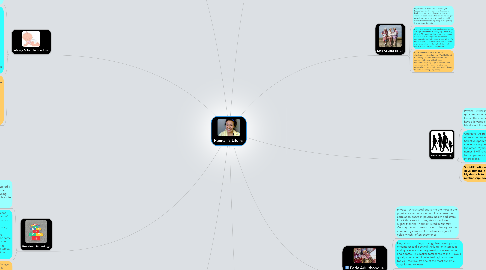Hannah's Life
von Hannah Goodwin


1. Middle Childhood
1.1. Physical- In my Middle childhood i started devloping my fine motor skilsl by writing in cursive. I absolutely hated my handwriting!
1.2. Cognitive- Cognitive development in Middle Childhood is huge! No longer is reading an accomplishment in and of itself, it is a means to an end- children learn by reading! My favorite book to read in Middle Childhood was "Boxcar Children."
1.3. Social/Emotional- Moral Development is making big strides in Middle Childhood. At this stage, more development for girls includes, "goodness as self-sacrifice." Basically females begin to think that they must sacrifice their own wishes to benefit others. I definitely had this mentality in my relationship with my mom. I felt that I was only good if I made sure that I did everything to make her life easier (clean my room, do the dishes, etc.)
2. Pre-Natal & Newborn
2.1. Physical- Even though I was legitimately freaked out when I read about lanugo hair in our texts, I was informed that I did have it. The idea of that is still so weird to me!
2.2. Cognitive- In this stage of development, habituation occurs. A new stimulus becomes normal and no longer evokes an "orienting response." The baby becomes used to the activity. My mom says that I had a mobile over my crib. At one point it use to captivate my attention, but with time I got use to it and it no longer entertained me.
2.3. Social/Emotional- at the newborn stage researchers found that infants can imitate behavior! As a baby, I often imitated smiles and sounds!
3. Infancy & Toddlerhood
3.1. Physical- As the infants strength increases, their gross motor skills are able to expand. While they aren't very sophisticated in their movement, at 6months babies can usually move themselves in particular directions. Crawling occurs typically around 8-10 months. I was crawling at 8.5 months!
3.1.1. New node
3.1.1.1. New node
